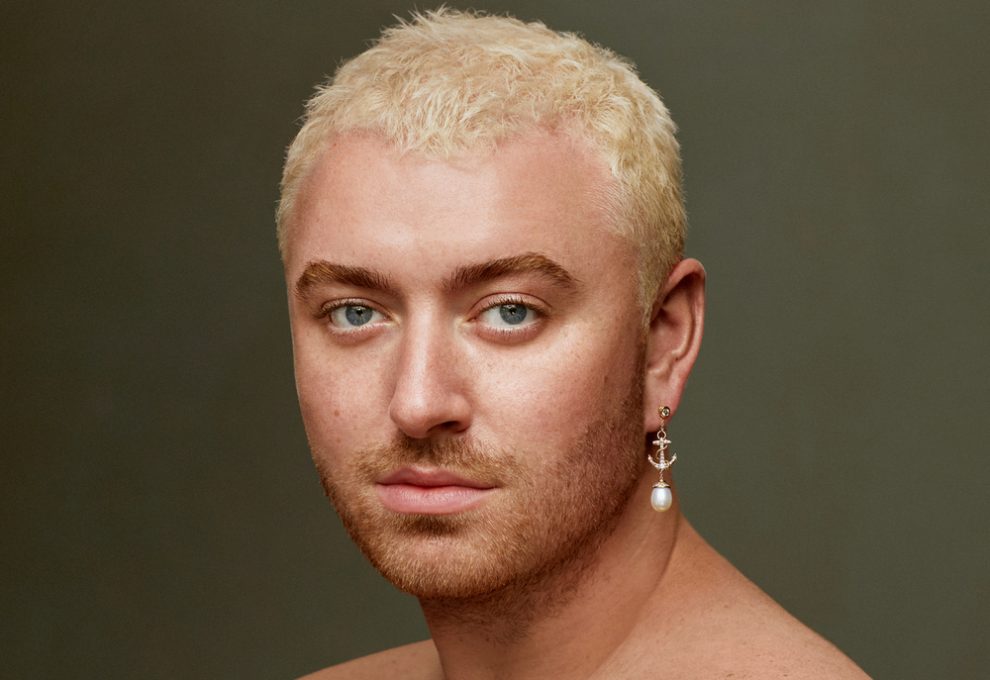The world—especially the church—would be a better place if Christians who are heterosexual and are not trans listened to a sermon about sexual sin from the perspective of the LGBTQ community.
I’m gay and remember sitting in church with my family as our pastor spoke of the physical and spiritual fate that awaited someone like me after death: Not a trip to heaven to be with our Lord and Savior, but a Spirit Airlines flight straight to hell. I’m joking about it, but that’s because theatrics are a great mask for sorrow. The nodding heads of congregation members I had grown up around, of people I loved and who had said they loved me, told me all I needed to know about my worth and my status in the church. I deserved fire and brimstone. I was undeserving of the pew I was seated in.
I know the pop stars Sam Smith and Kim Petras—who identify as gender nonbinary and a transgender woman, respectively—have endured the same disempowering exile from the church. When the church expels you in such a hate-filled way, it is nearly impossible to dodge being influenced by its view of you. Suddenly, you too are depriving yourself of value and telling yourself that, in addition to not being of the world, you should not even be in the world. I told myself this for years, and the only reason why I didn’t accept this fate—kill myself—is because I figured it would only send me to hell quicker and more damned. “Thou shalt not be queer” wasn’t one of the Ten Commandments, but “Thou shalt not kill” was.
I eventually found a community of people who do not see me as profane because I am gay and eventually believed this better view of me. Yet, when you see churches inflicting hate again and again upon other LGBTQ people, you feel helpless and want to remove the sting of that hate.
So it is that LGBTQ people with a penchant for using theatrics to hide their sorrow have embraced, time and time again, the monster that the church has made them a shadow of: Satan. “If you think we’re vile,” we say, “we’ll show you vile.”
Cue Sam Smith and Kim Petras’ Satan-themed Grammy performance of their song “Unholy,” which seems to have shaken many Christians to their core. It amazes me that many Christians have yet to set aside their fear after seeing, for the umpteenth time, these sort of moments of spectacle—set aside their horror to see the true fright and pain that lies behind these cartoonish productions.
But maybe many Christians do see the pain of the artists shunned from churches and don’t care to rectify the issue. Fixing their followers’ attention on a common enemy such as LGBTQ people keeps their followers from being calm enough to recognize the production of unholiness they have been cast in and that their leader is directing—from the pulpit and news outlets and government offices and more.
At least Sam Smith and Kim Petras are simply putting on a play. In real life, words of hate spewed toward the LGBTQ community are transforming into violence and death. Already this year, according to the Human Rights Campaign, 38 transgender people have been killed as a result of “violent fatal incidents against transgender and gender non-conforming people.” I know of no Christian that has yet to die from seeing artistic, not-by-the-book use and depictions of religious and sacrilegious imagery.
Another irony that has not bypassed the LGBTQ community is that sermons calling them a threat are coming from an entity that has hidden sexual abuse by clergy upon adult and youth members. I am reminded of what Sunny Hostin said in June 2019 to a bishop who tweeted that Catholics should not recognize LGBTQ Pride Month. “Given what the Catholic Church has hidden about the abuse of children … some would say that being at a Pride parade would be much safer for a child than it has been to be in a Catholic Church for many years.”
I am also reminded of the words of the pop star Lady Gaga, who is bisexual and Christian and, like Sam Smith and Kim Petras, has used satanic theatrics to bring her music, a pivotal part of her essence, to life. “Mary Magdalene washed the feet of Christ and was protected and loved by him. A prostitute. Someone society shames as if she and her body are a man’s trash can. He loved her and did not judge. He let her cry over him and dry his feet with the hair of a harlot. … we are humans and sinners, children … We are as equally forgiven as our neighbor.”
But the grandest irony of the Christian uproar over Smith and Petras’ Grammy performance may be that, if Christians had turned on the television earlier or checked out more clips from the Grammys on YouTube, they might have seen the performance of the singer-rapper Lizzo. Lizzo performed her song “Special” with a dancing gospel choir, and it was everything I wished church was—everything that church is supposed to be—her lyrics proclaiming unconditional love in the face of imperfection.
If sin has not permanently marred the church—if the church is still worthy of God’s love and grace and forgiveness—then why are LGBTQ people not welcome to be loved in the church? I am a firm believer that what we hate is what we fear is in ourselves. We fear we are unworthy of a place alongside God and want to distance ourselves from anything and anyone that bears the blemishes and scars of real life, overlooking the fact that perfection is the Lord’s, overlooking that it was love that guided our Savior and love that thus should guide us, too.
“I look at my parents,” said the title character of the TV show I’m enjoying right now, the religious comedy Ramy, “and it’s like … they say they believe in God but … I think they’re f****** anxious about God. And I am too.”
So am I, most of the time. Other moments I note the unapologetic existence of fellow LGBTQ people like Sam Smith and Kim Petras and the artistry of allies like Lizzo and feel more than calm; I feel at home, like I did before I heard my pastor say I was doomed to burn, before the heads of my siblings in Christ agreed with nods that may as well have been shouts of “Amen!”
Image: Sam Smith, cover of Gloria (2023)













Add comment